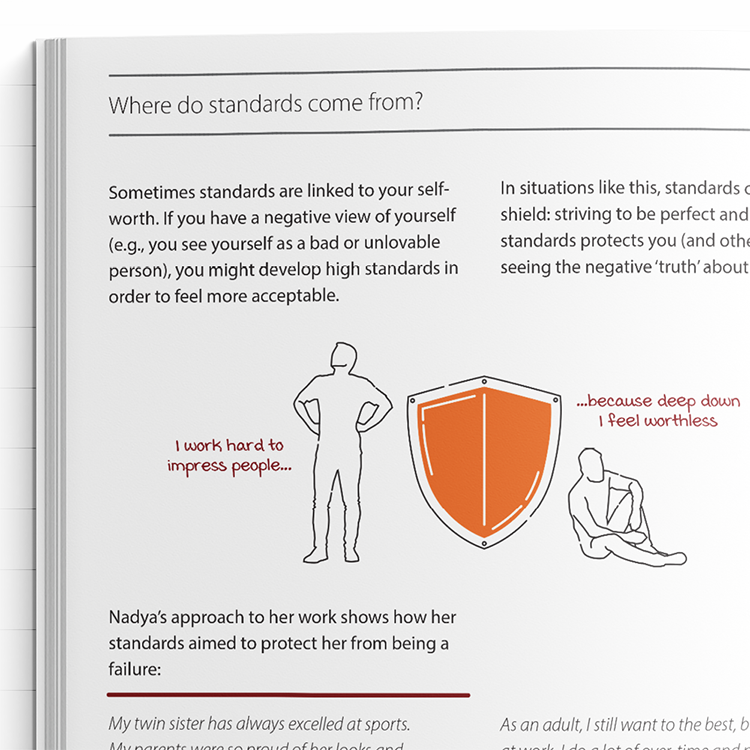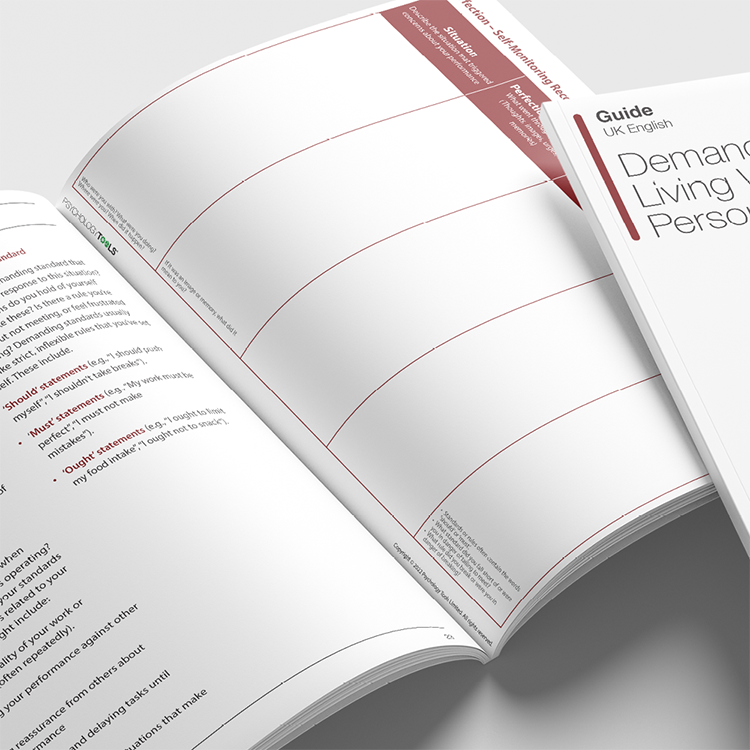Workbook (PDF)
A workbook containing elements of psychoeducation and skills-development.
A comprehensive guide designed to support individuals in understanding and addressing demanding, perfectionistic standards.

A workbook containing elements of psychoeducation and skills-development.
To use this feature you must be signed in to an active account on the Advanced or Complete plans.

Demanding Standards - Living Well With Your Personal Rules is a guide written for clients who have high or perfectionistic standards which cause them distress. It provides clear information about what standards are and how they are maintained, as well as exercises with step-by-step instructions to help clients identify, monitor, and address their perfectionistic standards.
Striving to meet standards that are extremely demanding and difficult to achieve can lead to serious difficulties, including anxiety, depression, obsessive compulsive disorder (OCD), and eating disorders.
Individuals whose self-esteem is tied to meeting high standards.
Worry associated with meeting demanding standards.
Diminished mood and self-worth due to unmet standards.
Perfectionistic standards related to shape, weight, or food intake.
Identify clients who may be struggling with demanding standards.
Offer the guide to clients who might benefit from it.
Use the content to inform clients about the impact of demanding standards.
Discuss each client’s personal experiences with high standards.
Utilize the exercises in the guide to help clients address their standards.
Standards play an important role in both personal development and societal functioning. However, when individuals strive to meet excessively high and often unattainable standards - sometimes referred to as 'perfectionistic standards' - this can lead to significant psychological difficulties, including clinical perfectionism, anxiety, depression, obsessive compulsive disorder (OCD), and eating disorders.
This guide is designed to support clients who are struggling with perfectionistic or overly demanding standards. The guide aims to help clients develop a clearer understanding of what standards are, when and why they become perfectionistic and problematic, and how to address them.

Just enter your name and email address, and we'll send you Demanding Standards – Living Well With Your Personal Rules (English US) straight to your inbox. You'll also receive occasional product update emails wth evidence-based tools, clinical resources, and the latest psychological research.
Working...
This site uses strictly necessary cookies to function. We do not use cookies for analytics, marketing, or tracking purposes. By clicking “OK”, you agree to the use of these essential cookies. Read our Cookie Policy